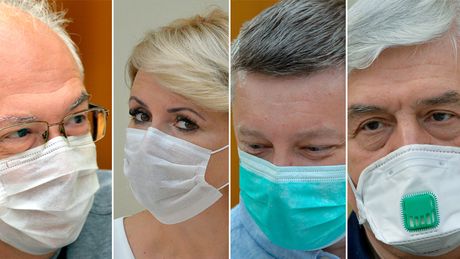Return to Serbia by end of the week, new regime takes effect them: New measures from Friday at 6 pm
The last measures before the end of summer vacations, to make sure coronavirus that has just been put under control doesn't explode again

At the session of the Crisis HQ for the fight against coronavirus, which discussed the introduction of mandatory self-isolation lasting 10 days for all our citizens returning from Montenegro, Croatia and Bosnia and Herzegovina, but also other countries in the region where the situation is less favorable than in Serbia, a decision was made to introduce supervision over all our citizens returning from summer vacations, starting on Friday evening.
Professor Dr. Darija Kisic Tepavcevic said after the session of the Crisis HQ that the new measures will take effect on Friday at 6 pm, and called on all our citizens to return to the country by then.
"In our country, the situation is far more favorable. On this occasion, we appeal on all our citizens who are in the neighboring countries to return to their country by Friday, because on Friday at 6 o'clock we will have a different regime. Starting on Friday, supervision will be introduced for all passengers entering our country," said Professor Kisic Tepavcevic.
She added that this will not be quarantine or self-isolation, but only supervision.
"This will minimize the risk," she said.
Mandatory quarantine, was of the items on the agenda of the members of the HQ, and was announced yesterday by the Ministry of Health. There were 108 new cases yesterday out of 3,082 tested, the ministry assessed this to be a slight increase, and a consequence of the return of our citizens from vacations in Montenegro and Croatia.
"Once again we appeal to all who return to the country to show solidarity and reduce their movement in the first seven days after return, to reduce contacts to a minimum or to get tested immediately," the Ministry of Health appealed.
Although the media have been speculating that mandatory quarantine could be introduced, our source said that there is no legal framework for that now.
"It will only be recommended to citizens to be stay in self-isolation for a certain number of days, and to report to a Covid ambulance immediately if they feel any symptoms. Also, their children will not go to school for 7 to 10 days. Mandatory quarantine cannot be introduced, and especially the police cannot control whether citizens respect that measure, as was the case during the state of emergency. We've came out of that," our source inside the HQ said before today's session.
If, by any chance, a measure of obligatory quarantine were to be adopted, then respect of that measure would have to be controlled.
"In that case, upon returning to the country citizens would receive a paper on isolation, and enter a unified system, however now we don't have the conditions for that," said our interlocutor.
Kisic Tepavcevic: The situation can change quickly
Ahead of the session, Professor Dr. Darija Kisic Tepavcevic, Deputy Director of the Institute of Public Health of Serbia "Dr. Milan Jovanović Batut" spoke for RTS in a similar tone.
"We've had a downward trend since August, but some oscillations like yesterday indicate that the situation can change quickly. There has been an increase in cases in 23 countries in Europe last week, including all the surrounding countries. We are in an unfavorable situation due to the surrounding countries, the virus can spill over, great caution is needed," said Dr. Darija.
Asked whether the Crisis HQ will make a decision on mandatory quarantine, she said:
"What is crucial and we have been saying it for weeks is that we must adhere to the measures, even if we travel somewhere because in almost all European countries the situation is worse now than in our country at the moment. We need to think about the risk of getting infected and spreading it. Regardless of all measures and penalities, we must return to the concept of acting responsibly."
The virus is most often transmitted in the first 10 days after infection
Dr. Kisic Tepavcevic explained that self-isolation of ten and not 14 days was being considered, because such are the recommendations of all leading health organizations in the world.
"It is estimated that the maximum incubation period for this disease is 14 days. Many countries have introduced quarantine for a double incubation period due to maximum precautions, but it is now estimated that the virus is most likely to be transmitted to the environment in the first ten days after infection. The new recommendations are in line with that," explains Kisic Tepavcevic.
She stressed that currently what worries the most is the increase in the percentage of positive results among those tested.
"Previous experiences have shown that whenever we have that jump, we see only in a week or two whether that increase had led to an increase in the volume of local transmission in the country. We must not relax," stressed Dr. Darija Kisic Tepavcevic.
Who would control self-isolation
If self-isolation for those returning to the country was introduced today, Dr. Kisic Tepavcevic said that observance of that measure would be controlled by state bodies - sanitary inspection, police...
"We have that experience in the previous period, but I note that we all have to be controllers ourselves, and the state will do as much as possible to reduce the risk of increasing the volume of local virus transmission," Kisic Tepavcevic pointed out.
Video: Kisic: Starting on Friday at 6 pm supervision of everyone returning to the country
(Telegraf.rs)
Telegraf.rs zadržava sva prava nad sadržajem. Za preuzimanje sadržaja pogledajte uputstva na stranici Uslovi korišćenja.




